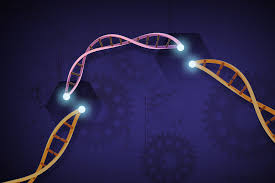From Gene-Edited Embryos to Covid: China Faces Regulatory and Ethical Challenges
By Yuting Zhu and Jonathan D. Moreno,
The Hastings Center
| 07. 28. 2022
In early April, He Jiankui, the Chinese scientist who used gene-editing technology on human embryos born in 2018, was released from his three-year prison sentence, imposed after a Shenzhen District Court convicted him of “illegal medical practice.” He and two accomplices were banned from conducting any work related to assisted reproductive technology, applying for administrative permits for research on human genetic resources, and from applying for research funds.
The He Jiankui affair and, little more than a year later, the Covid pandemic have focused attention in China on ethical governance of research and medical practice. Over the last two years, China has updated some regulations on human genetic engineering and assisted reproduction and established a national committee to guide and supervise bioethics nationwide. But there are legal gaps in some of the regulations and tension between competing values: the desire to encourage new research and to potentially inhibit it by imposing stricter ethics regulations.
An example of this tension came out in public expression over He Jiankui. Ever since his arrest there have been occasional comments on Chinese social media...
Related Articles
By Diaa Hadid and Shweta Desai, NPR | 01.29.2026
MUMBRA, India — The afternoon sun shines on the woman in a commuter-town café, highlighting her almond-shaped eyes and pale skin, a look often sought after by couples who need an egg to have a baby.
"I have good eggs,"...
By George Janes, BioNews | 01.12.2026
A heart attack patient has become the first person to be treated in a clinical trial of an experimental gene therapy, which aims to strengthen blood vessels after coronary bypass surgery.
Coronary artery bypass surgery is performed to treat...
By Staff, ScienceDaily | 01.05.2026
Scientists at UNSW Sydney have developed a new form of CRISPR technology that could make gene therapy safer while also resolving a decades-long debate about how genes are switched off. The research shows that small chemical markers attached to DNA
...
Following a long-standing CGS tradition, we present a selection of our favorite Biopolitical Times posts of the past year.
In 2025, we published up to four posts every month, written by 12 authors (staff, consultants and allies), some in collaboration and one simply credited to CGS.
These titles are presented in chronological order, except for three In Memoriam notices, which follow. Many more posts that are worth your time can be found in the archive. Scroll down and “VIEW...




